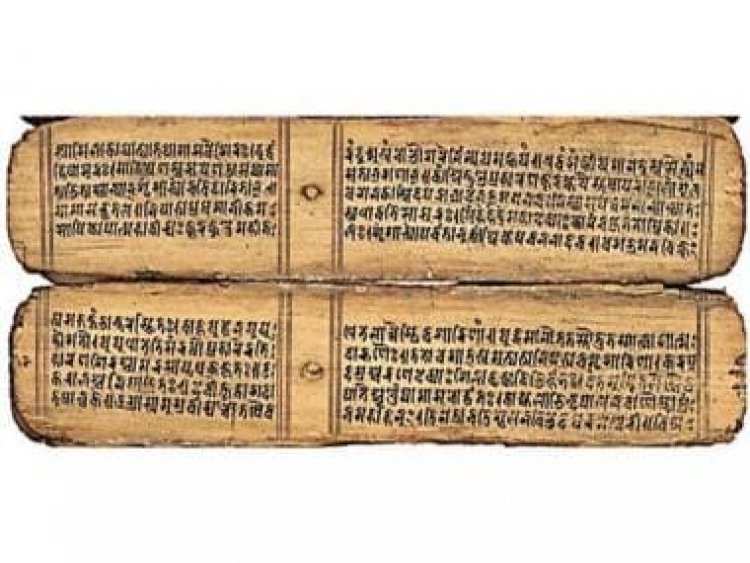Dharma Files | Some limitations of Marxism in an Indian context
Dharma Files | Some limitations of Marxism in an Indian context

Marxist historians apply a paradigm, which had been developed in the West in its own historical situation, to India. There is nothing wrong in principle in applying models developed in one part of the world to another for the insights they might yield, but it seems to have sometimes resulted in obfuscation rather than illumination in the case of India. The Right, for the Left in Europe, was constituted by the fascists, and fascism involves devotion to the state, even blind devotion to it. In India, however, the reality is otherwise. If we talk in terms of a nation-state, the Hindu Right is all gung-ho about the nation, but has virtually neglected the state. It is the idea of the Hindu Rashtra which is the centre of its attention, not the Hindu state. Even a cursory look at the works of VD Savarkar, MS Golwalkar, and Balraj Madhok will reveal the startling fact that the Hindu Right had paid very little attention to the state, and that most of its attention has been reserved for the nation part of the nation-state hyphenation. One can say that this was also true of Marx, who saw the state as withering away. But then there was Lenin.
The negligence of the state, by the Hindu Right, may reflect a phase of the Hindu tradition itself, in which the study of the Arthaśāstra, the classical work on statecraft, went out of vogue after the eighth century as a result of constant attacks on its alleged Machiavellian realism by the Jainas, the Buddhists, and Hindu liberals, according to Professor GC Pande. It is worth recalling that, in modern times, the British had no problem getting hold of texts on dharma, such as the Manusmṛti, as soon as they began their rule in right earnest after 1757, but the copy of the Arthaśāstra was accidentally discovered in 1909 in Kerala. These facts epitomise the situation. Thus, to call the Hindu Right fascist is wide off the mark; it is rather its opposite which is true — that they have not paid sufficient attention to the state as an entity.
This is one limitation Marxist ideas run into when applied in India. Another is the following.
The Left-leaning historians accuse the Hindu Right of its attitude towards the minorities, but such conceptualization of a polity in terms of majority-minority is itself a Western import. It rests on the assumption that one can only follow one religion at a time. Moreover, it has been applied uncritically to India. European historical experience was characterised by the oppression of the minority by the majority; Indian historical experience is also characterized by oppression, but it is the oppression of the majority by the minority — as during Muslim rule and British (Christian) rule, at least in the perception of the majority. That the direction of oppression was the opposite in India is a key element in the situation, which is constantly overlooked, and which, when taken into account, realigns the entire dynamic of the situation.
Could it be that it is not Marxism but Orientalism, as expounded by Edward Said in his famous book with that title, which perhaps holds the key to understanding the Indian reality, historically and historiographically? That knowledge is related to power is an insight not alien to Marxist thought, but by restricting it to class categories the Marxists seem to have missed out on the grand picture: that all knowledge production is profoundly connected with power, and, in the case of India, especially connected with the exercise of power by the British in India. Even though the Marxists have the key, they do not apply it to the right lock, the lock by which India is fettered, because they were too obsessed with class distinctions as opposed to national distinctions. Although imperialism is central to both Marxism and Orientalism, the Marxist in India failed to reach the following vital insight, as articulated by Edward Said (1978):
I doubt if it is controversial, for example, to say that an Englishman in India or Egypt in the late nineteenth century took an interest in those countries that was never far from their status in his mind as British colonies. To say this might seem quite different from saying that an academic knowledge about India and Europe is somehow tinged and impressed with, violated by, that gross political fact — and yet that is what I am saying in this study of Orientalism. (p. 11)
The imperial Indian reality has often been examined, perhaps even obsessively, in terms of Marxism; it still remains to be fully examined in terms of Orientalism.
The author, formerly of the IAS, is the Birks Professor of Comparative Religion at McGill University in Montreal Canada, where he has taught for over thirty years. He has also taught in Australia and the United States and at Nalanda University in India. He has published extensively in the fields of Indian religions and world religions. Views expressed are personal.
Read all the Latest News, Trending News, Cricket News, Bollywood News,
India News and Entertainment News here. Follow us on Facebook, Twitter and Instagram.
What's Your Reaction?



























































